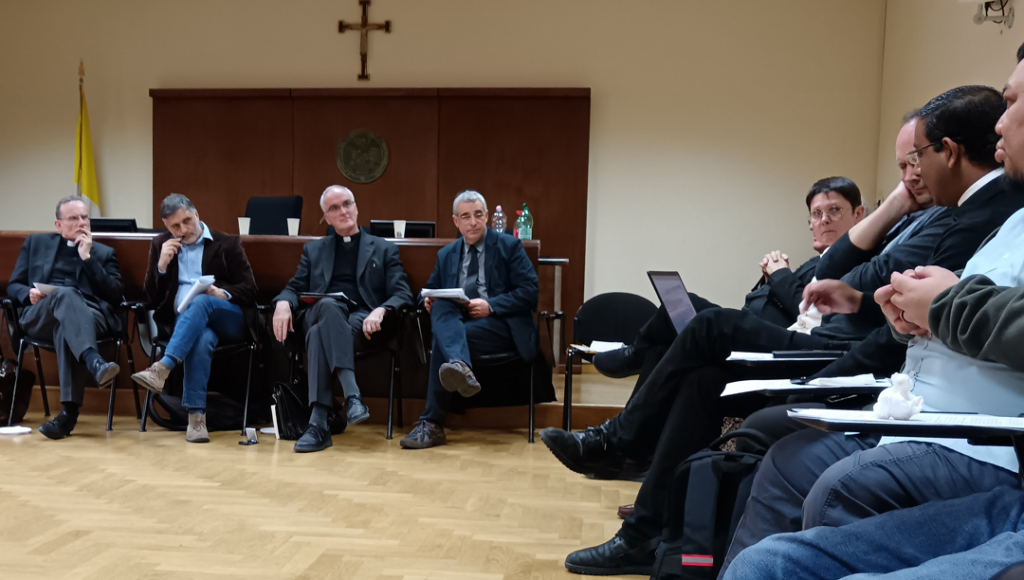On January 19, 2024, the Pontifical Gregorian University hosted a Day of Study “to reflect on the implications of Holocaust memory and how it affects our thoughts, actions, spirituality, ethics and theologies and how studying can help us reclaim our humanity after the Holocaust,” write the organizers. In the small circle of professors and students invited to attend this session the JPII Center Senior Program Manager Elena Dini, and JPII Leaders Dr. Ana Petrache (Cohort XIII, Romania) and Dr. Fr. Jackson Johnson (Cohort XV, India).
This yearly initiative is going to involve every year a different faculty of the Gregorian University in dialogue with the Cardinal Bea Centre for Judaic Studies of the same university. In 2024 the conversation that opened for a larger discussion on the topic of “Beyond the verse, reclaiming our Humanity” was facilitated by Prof. Rabbi David Meyer (Cardinal Bea Centre) and Prof. Gerard Whelan, SJ (Faculty of Theology).
Father Johnson, who is working on his PhD at the Angelicum on Catholic-Jewish dialogue and recipient of the 2023 John Paul II prize for Catholic-Jewish shares: “The selected texts for the study day focused on the significance of memory and textual analysis in relation to the Holocaust. The Midrashic text primarily discussed the transmission of tragedy to future generations, whereas the Catholic text emphasized using metaphors to symbolize the Jewish-Catholic relationship, specifically using the olive tree metaphor in Romans 11:17–24.” The question of memory was tackled with the challenging component of the limits of memory. “The study day concluded – adds Father Jackson – with a discussion on supersessionism and the need for more accurate images to describe Jewish-Catholic relations.”
In her reaction about the day of study, Dr. Petrache highlights the importance of reading and rereading texts through history: “Texts are shaped and appear in certain contexts and reading them depends on both the context of the author and the context of the readers and the timeline is part of this context.” Thinking particularly on the topic of the study day, Dr. Petrache continues: “One of the similarities of Christianity and Judaism comes from the theological ability to re-read texts in relation to new contexts, just as memory re-reads events in relation to new life experiences, so re-reading a text integrates new aspects of the reader’s context. How we remember depends on who we are but who we are is shaped by what we have been invited to remember as a community.”

